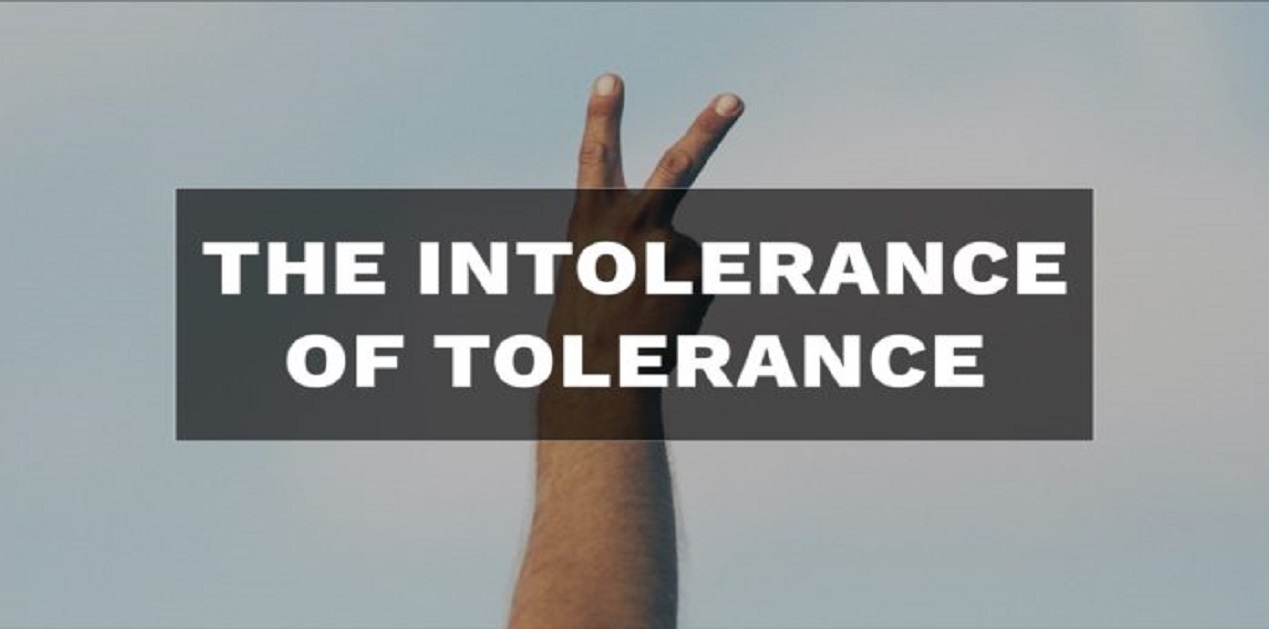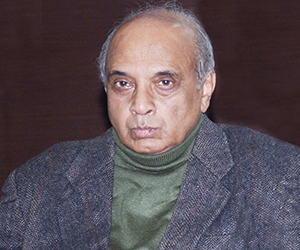It was not long after the first Modi government came to power that a number of Indian academics based in some Indian and Western universities, issued a public statement expressing apprehension about the dangers that the country supposedly faced from the policy of intolerance, which the new government at the centre was supposed to have pursued. There were thus two assumptions in the background, and the material on which the statement was based was derived from the bits and pieces of information regarding 'lawlessness' in the country ------the kind of information that one can always pick up from the newspapers in a country of India's size and population. One would have rubbed one’s hands in glee if indeed there were some genuine cases of intolerance in our campuses where a few old ladies and gentlemen who caused a lot of misery to their colleagues in earlier times, would be seen running from an irate mob. The campuses the author had in mind are based in Delhi and the people the author would have loved to see chased by a mob were all some kinds of historians. But such a hope did not materialise and the charge of intolerance against the government in power since 2014 has lingered on and is aired from time to time in the media.
The media attention currently seems to be focussed on a private university which came up comparatively recently with the avowed purpose of trying to satisfy the needs of the children of the Indian rich for liberal education. Source of information is NDTV, among others, and we have been left to ponder that the university apparently did not take too kindly to an 'eminent' professor's opinion that the country was facing, under the present government 'fascist' inroads and the consequent violations of Constitution. NDTV further tells us that another ‘eminent' professor of the same university has resigned. The resignation of some university professors cannot be converted into a national issue, as some media organizations have in this case sought to do, without very good reasons. Let me try to amplify the issues one by one.
First, the government in power has been charged with the pursuance of a ‘fascist’ policy of intolerance by one of these ' eminent' professors. This charge is as edifying as the charge launched by some academics as early as 2014/2015. It had no substance and simply meant that the signatories in question were in the good books of the government that had to depart in 2014 and that their personal ambitions were not fulfilled in the new regime. It was as simple as that. Similarly, the man who has begun to discover fascist proclivities in the workings of the new regime and his colleague who in sympathy submitted his own resignation, plainly refuse to go into the shadows and find some way of being noticed in the national press. This is all right, as long as one can pull it off. Worse tricks are known to have been performed in the academia and the two gentlemen in question are entitled to enjoy their position of momentary fame in the media.
The second question is more important. What makes these gentlemen ‘eminent' and why their opinion on the functioning of the present government is newsworthy? To answer the later issue first, the charge against the present Government is very acceptable to certain sections of the media and they will lose no opportunity to run it down. The first issue ----the one related to these gentlemen's ‘eminence'---is important and related to something which has grown intrinsic over the years to the Indian academic world.
As an old geezer of an academic, let me spell it out clearly. The importance or eminence of an academic in Delhi University, when this author joined it in 1977, depended mostly on the number of times the person has visited or visits a First World university. Another factor was his or her bureaucratic link. The sky-high reputation of a particular 'school' of the university was partly dependent on the position of one or two of its members in Planning Commission, Reserve Bank, etc. If this situation was somewhat rare in the 1970s outside the bureaucratic world of Delhi or outside the world of the Indian nouveau riche, it has become far more endemic now.
The link-up between bureaucracy and the academia is a comparatively recent phenomenon based on the American model. There is nothing wrong with it. At the VIF itself one can think of a number of retired diplomats and defence personnel whose expertise could be put to great academic use, provided our universities had any sense about using their brilliance for the benefit of researchers and students. In the Indian context this has hardly happened.
The basic story here is that of a continuous growth of a privileged class of Indian academics in the social sciences and the humanities. It is a complex story but the point is that it is the growth story of a bunch of poseurs and charlatans who are not half as good as our technologists and scientists. To be honest, this unpleasant scenario is an almost unavoidable part of the global academic scene of the social sciences and the humanities, but in our country these poseurs and charlatans flourish unchallenged. Their attitude to the power-structure of the country depends wholly on how much they can wring out of it for themselves. One wishes that they could be exposed to a full range of intolerance and/ or fascism, but it is an impossible event in our democratic structure. However, this class should clearly be shown the position it occupies in the national scheme, i.e. the gutters of Indian history.
(The paper is the author’s individual scholastic articulation. The author certifies that the article/paper is original in content, unpublished and it has not been submitted for publication/web upload elsewhere, and that the facts and figures quoted are duly referenced, as needed, and are believed to be correct). (The paper does not necessarily represent the organisational stance... More >>
Image Source: https://belatina.com/wp-content/uploads/2020/08/image-696x392.jpg











Post new comment